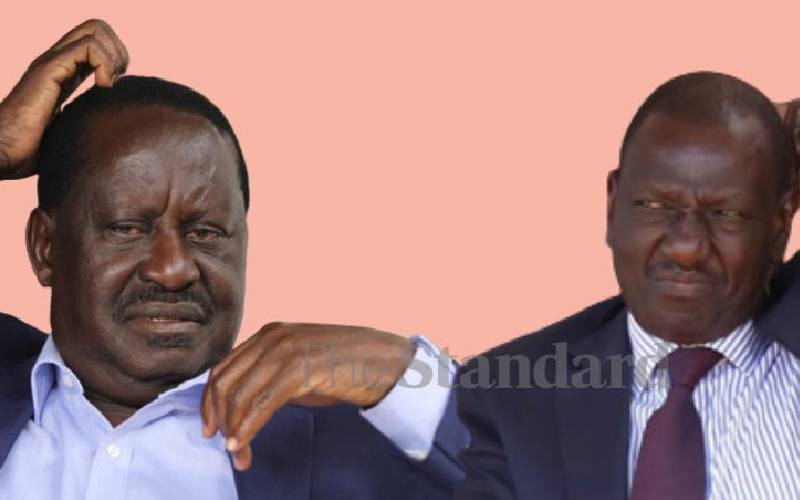×
The Standard e-Paper
Truth Without Fear

Ahead of the 2007 General Election, pitting the incumbent President Mwai Kibaki against his closest challenger ODM leader Raila Odinga, there was a spirited campaign by the opposition to clinch power.
At the time, William Ruto was one of the fiercest campaigners of Raila having traversed with him the nooks and crannies of the country and looked at possibility of getting into government through the ODM chief's victory.